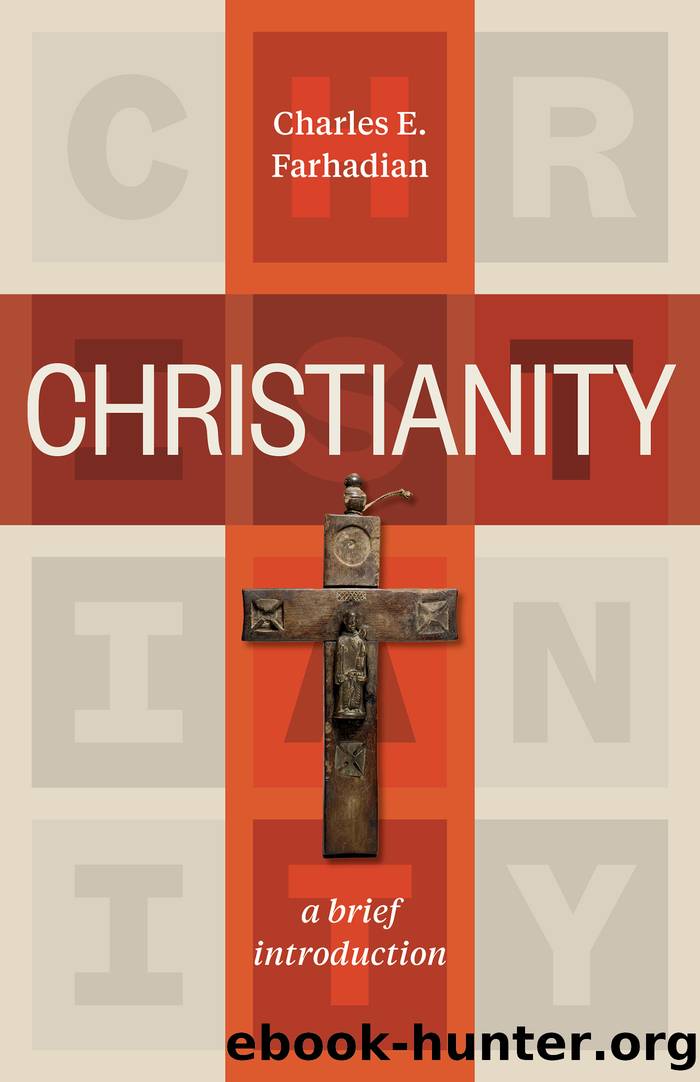Christianity by Charles E. Farhadian

Author:Charles E. Farhadian
Language: eng
Format: epub
Tags: Religion/Christianity;Christianity—Essence | genius | nature;REL070000;REL017000;REL000000
ISBN: 9781493423651
Publisher: Baker Publishing Group
Published: 2020-10-20T00:00:00+00:00
The Bible in Context
The Bible was written in specific contexts. Likewise, it is interpreted in a variety of contexts. When interpreting the Bible, individuals and communities make sense of it through their own perspectives, along with the questions and needs of their particular contexts. Since the twentieth century, interpretations of the Bible range from fundamentalist perspectives of inerrancy (the Bible being without error, including in matters of science, geography, and history) to heavily critical ones where the Bible loses its authority entirelyâor at most is seen as just one authority among other sources of knowledge. These approaches give shape to particular forms of Christianity. While it is impossible to do justice to the immense variety of contexts in which the Bible is engaged, here are a few core samplings of contemporary biblical interpretative strategies.
It is said that the church in Africa emphasizes healing, vision, and powerâall themes within the Bible. The African Independent Churches (AIC), the most dynamic churches on the continent, are marked by their spirit-led worship. When confronting a woman who believed herself to be possessed by an evil spirit during a prayer service, Zambian archbishop Emmanuel Milingo recognizedâwhen all medical and psychiatric help failedâthat the woman had been overpowered by the Holy Spirit and was healed. After this event, Archbishop Milingo dedicated his ministry to healing activities that he understood to be based on the authority of the Bible. Yet his view of healing, founded on his reading of the Bible, entailed liberation in many parts of Africa from all forms of oppression, both spiritual and material, throughout the continent.17
In general, African Christians do not separate the Bible from other forms of knowledge. According to African studies professor Gerrie ter Haar, âThe Bible remains the most important spiritual and intellectual resource for African Christians.â18 The place of the Bible in the lives of African Christians distinguishes them from Western Christians. Ter Haar notes that immigrant African Christians in Europe carry their Bible with them, and from the Bible they critique European society around them, couched in a spirit idiom. In Africa, and among African diasporic Christians, the material and the spiritual worlds are interconnected, the visible and the invisible overlap.
Asian American biblical hermeneutics provides insights that can enliven our understanding and shift our orientation. Tat-Siong Benny Liew researches the intersection of Asian American biblical hermeneutics and postcolonial theory. His thesis seeks to challenge both nationalism and imperialism. Liew argues for the concept of âyin-yang eyesâ in his biblical hermeneutics, aiming to explore the oppressive as well as liberating potential of the Bible. From another Asian perspective, writings of R. S. Sugirtharajah, a Sri Lankan emeritus biblical scholar at the University of Birmingham, explore Bible interpretation from the so-called Third World (i.e., the Majority World), highlighting themes of postcolonial biblical criticism, the Asian faces of Jesus, and themes at the intersection of Bible and empire. Sugirtharajah examines overlooked aspects of biblical texts marshaled by Victorian preachers to strengthen British imperial intentions in South Asia, thus illustrating the power of postcolonial interpretations and the use of the Bible among colonizers and the subjugated.
Download
This site does not store any files on its server. We only index and link to content provided by other sites. Please contact the content providers to delete copyright contents if any and email us, we'll remove relevant links or contents immediately.
Christian Ethics by Wilkens Steve;(860)
Christian Ethics for a Digital Society by Kate Ott(779)
Fearfully and Wonderfully Made by Philip Yancey & Paul Brand(771)
God and the Multiverse by Victor J. Stenger(675)
Numbers by Ronald B. Allen(639)
How to Read Slowly by James W. Sire(616)
Christian Ethics: An Introduction to Biblical Moral Reasoning by Wayne Grudem(598)
The City of God by Saint Augustine & Marcus Dods(590)
Monastic Archaeology by Unknown(568)
Morality by Jonathan Sacks(566)
The Technological System by Jacques Ellul(548)
Amish Grace by Donald B. Kraybill & Nolt Steven M. & Weaver-Zercher David L(535)
Death of the Doctor by Unknown(526)
The Disabled Church by Rebecca F. Spurrier;(523)
Jesus: A New Vision by Whitley Strieber(522)
Children of Lucifer; The Origins of Modern Religious Satanism by Ruben van Luijk(513)
Critical Writings by Joyce James;(503)
Redeeming Sociology by Vern S. Poythress(488)
The Church in the Early Middle Ages by G.R. Evans(477)
